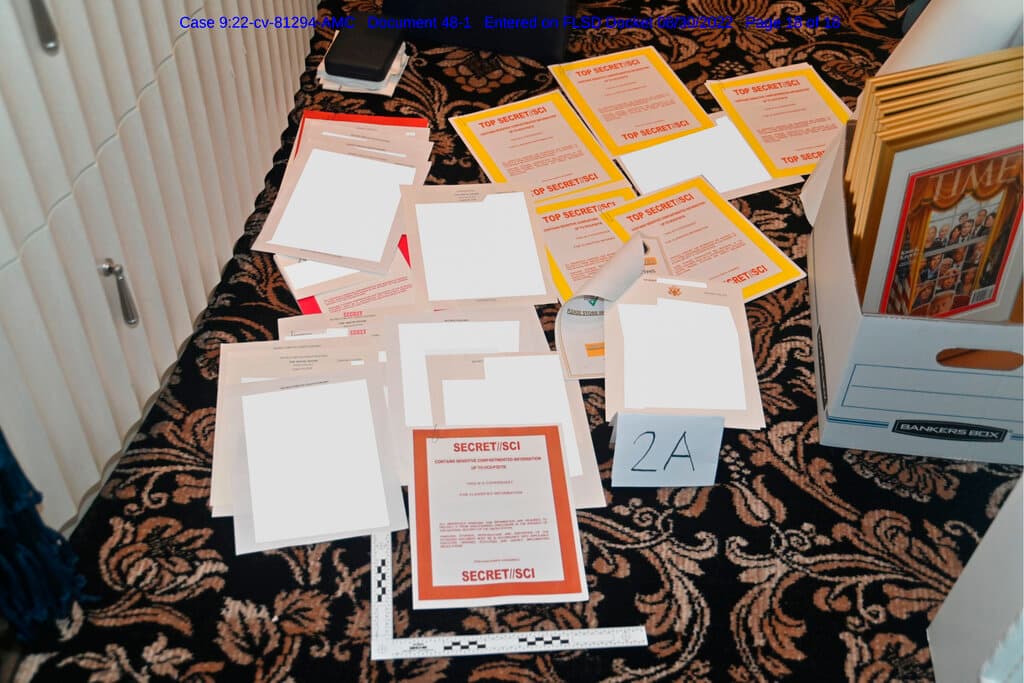Trump Takes a Licking in Court Hearing Over Special Master
Republican-appointed judges of the 11th Circuit appear to line up with the Biden administration.

Paging John “Jack” Smith. The freshly minted special counsel, tasked by Attorney General Garland with managing the double-barreled criminal investigations of President Trump, is reportedly laid up in bed at the Hague after sustaining injuries in a bicycle accident.
Mr. Smith was likely listening in as a Department of Justice lawyer, Sopan Joshi — who once clerked for Justice Antonin Scalia — locked horns with Mr. Trump’s lawyer, James “Jim” Trusty, before a three-rider panel of the 11th United States appeals circuit. The subject was the validity of the special master appointed by a district court judge, Aileen Cannon.
In arguing that the panel should nix the special master — Judge Raymond Dearie — Mr. Joshi maintained that there has never been a “single decision by a federal court” where a special master was established in the absence of a showing that a search was unlawful. No such showing has been made here.
Mr. Joshi argued that Mr. Trump “does not want” the documents seized returned; he merely “wants to prevent the government from using them.” The appropriate place to challenge the government’s use of documents, Mr. Joshi insisted, is during a criminal trial.
The government suggested that Mr. Trump’s defenses against the seizure of documents are being built on “shifting sand,” taking the form of a potpourri of attorney-client privilege, executive privilege, and declassification claims, as well as a distinction between presidential and personal records.
Mr. Joshi lambasted Judge Cannon’s decision to appoint a special master as “anomalous and extraordinary,” and repeatedly reminded the court that the search was lawful and approved by the magistrate judge. He warned that should the panel keep Judge Cannon’s order in place, the “anomalous can become commonplace.”
Mr. Trusty struck back by calling the government’s actions a “raid,” a turn of phrase for which he was reprimanded by the panel. Acknowledging that case law was not on his side, Mr. Trusty reminded the riders of the “context” of the search — namely, that of a sitting president overseeing the investigation of a former one readying a run against the incumbent.
Two of the riders on the panel — Judges Britt Grant and Andrew Brasher — were appointed by Mr. Trump. The chief, William Pryor Jr., was nominated to the bench by President George W. Bush. Nevertheless, all three evinced skepticism toward Mr. Trump’s case.
A former acting solicitor attorney general in the Obama administration, Neal Katyal, who has emerged as a left wing critic of the Trump administration, tweeted, “My god, in the Trump Special Master appeal, I don’t think I’ve ever heard an oral argument go worse for a litigant.”
Judge Pryor worried that the intervention of a special master at this stage would breach the separation of powers via the interference of the judiciary into the executive branch’s prerogatives. He also fretted that if Mr. Trump gets to keep the special master, everyone subjected to a search would want one.
Mr. Trusty retorted that the search of Mr. Trump’s compound was a “historic event” that justified the additional guardrails that the special master provides. He accused the government of being indiscriminate in its search and seizure, absconding with “golf shirts and pictures of Celine Dion.”
Mr. Trusty was asked if he thought it is “rare for a target of a search warrant to think it is overreaching?” This suggests that the riders resisted his insistence that the investigation into Mr. Trump was different not only in degree but in kind from those involving regular citizens. Much of Mr. Trusty’s argument hangs on this point.
Also on Tuesday, Mr. Trump’s attorneys filed a request with Judge Cannon for an unredacted copy of the affidavit that supported the Mar-a-Lago search. In that motion, Mr. Trump accused the government of “acting with abandon in seizing” his “property.”
Judge Dearie’s initial report is due next month, though it will likely be subject to wrangling and appeals. In asking the 11th circuit riders to dispense with his work and the elongated timeline that ensues from it, Mr. Joshi cited Justice Frankfurter to the effect that “encouragement of delay is fatal to the vindication of the criminal law.”

